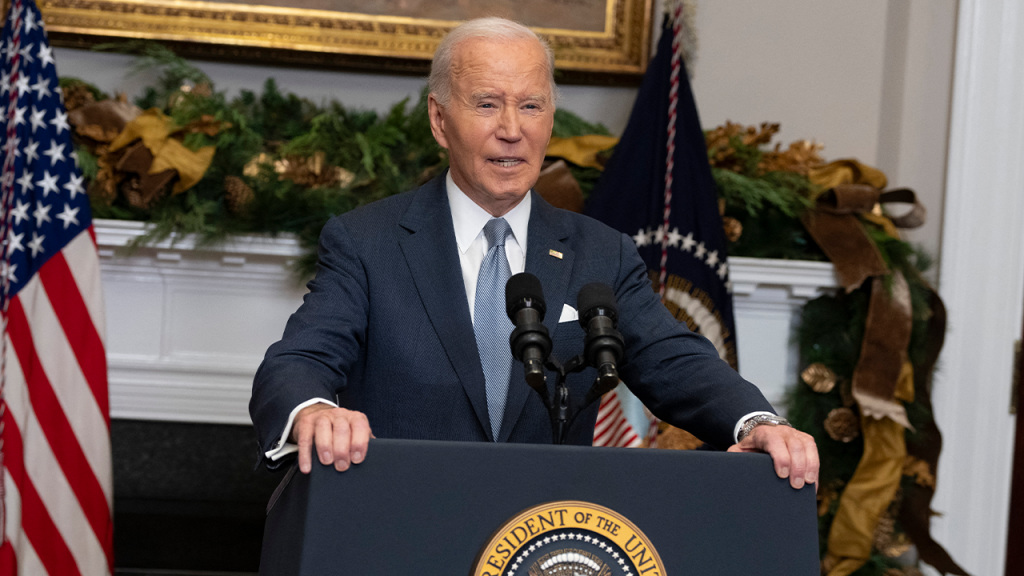The Fall of Assad and the Dawn of a New Era in Syria: A Complex Landscape of Opportunity and Risk
The unexpected collapse of Bashar al-Assad’s regime in Syria, following a nearly 14-year civil war, has ushered in a period of profound transformation in the Middle East, marked by a blend of hope and uncertainty. President Biden, addressing the nation, emphasized the significance of this moment, recognizing the long-awaited justice for the Syrian people while acknowledging the potential for instability and the need for careful navigation of the evolving geopolitical landscape. The U.S., under Biden’s leadership, has pledged to support Syria’s neighboring nations, particularly Jordan, Lebanon, Iraq, and Israel, to mitigate any potential threats emanating from a destabilized Syria. This commitment involves high-level diplomatic engagements, including direct presidential communications with regional leaders, to ensure a coordinated response to the evolving situation.
The U.S. strategy in post-Assad Syria encompasses three key pillars: regional stability, internal security, and political transition. Firstly, the U.S. aims to bolster stability in eastern Syria, safeguarding U.S. personnel and maintaining the ongoing mission against ISIS, including securing detention facilities holding ISIS fighters. Secondly, the U.S. will engage with various Syrian groups, collaborating with the United Nations to facilitate a transition towards an independent and sovereign Syria, free from the Assad regime’s grip. This intricate process will require balancing the interests of diverse factions within Syria, including those with concerning human rights records. Thirdly, the U.S. remains committed to the well-being of American citizens in Syria, particularly focusing on the case of Austin Tice, a journalist held captive for over a decade.
Assad’s flight to Moscow, where he has reportedly been granted asylum, adds another layer of complexity to the situation. While this marks the definitive end of his brutal reign, it also highlights Russia’s continued involvement in Syrian affairs. The interplay between Russia and the U.S. in shaping Syria’s future remains a critical factor in the evolving dynamics of the region. President Biden’s cautious approach, emphasizing vigilance and a careful assessment of the rebel groups now in control, underscores the need to avoid hasty judgments and to prioritize long-term stability.
Meanwhile, former President Trump, in stark contrast to Biden’s approach, advocated for non-intervention in Syria, arguing against U.S. involvement in what he deemed "not our fight." He attributed the fall of Assad to Russia’s waning interest due to its preoccupation with the war in Ukraine. Trump’s analysis, focused on the perceived weakening of Russia and Iran, calls for an immediate ceasefire in Ukraine and the commencement of negotiations, highlighting his transactional approach to foreign policy. This divergent perspective underscores the ongoing debate within the U.S. regarding its role in international conflicts and the appropriate response to complex geopolitical situations.
Israeli Prime Minister Benjamin Netanyahu welcomed the downfall of the Assad regime, attributing it to Israel’s actions against Iran and Hezbollah, Assad’s primary backers. He views this as a historic opportunity for the Middle East, albeit one fraught with potential dangers. Netanyahu extended a hand of peace to various groups within Syria, expressing Israel’s desire for peaceful coexistence with its neighbors while reaffirming its commitment to defend its borders against any potential threats. This perspective highlights the regional implications of Assad’s fall and the potential for reshaping alliances and power dynamics in the Middle East.
The fall of Assad presents a multifaceted challenge for the international community. While the end of his oppressive rule signifies a potential turning point for Syria, the path forward remains uncertain. The U.S., under President Biden’s leadership, has articulated a cautious yet engaged approach, prioritizing regional stability, internal security, and a managed political transition. The success of this strategy hinges on navigating the complex interplay of regional actors, addressing the potential for instability, and engaging with diverse Syrian groups, some with questionable human rights records. The contrasting viewpoints of Biden and Trump further underscore the complexities of U.S. foreign policy and the ongoing debate regarding its role in global affairs. The unfolding situation in Syria will undoubtedly continue to shape the geopolitical landscape of the Middle East for years to come.


